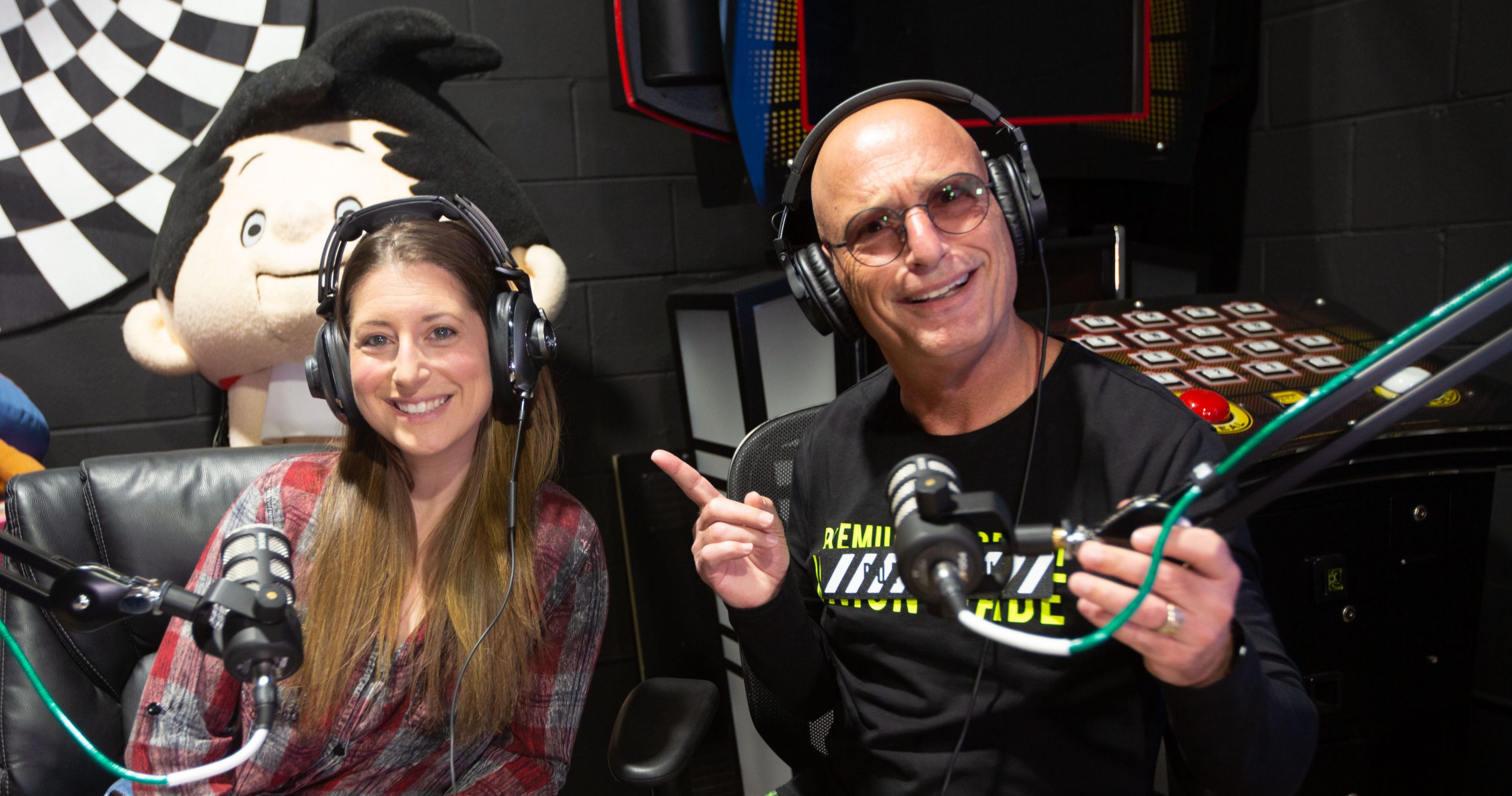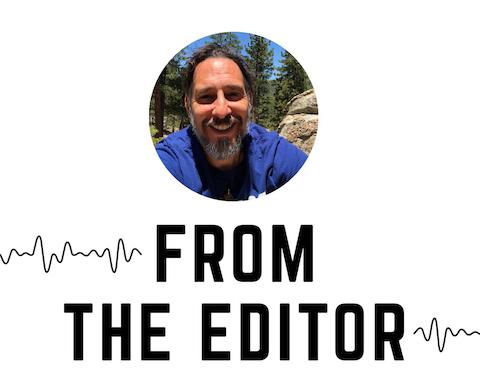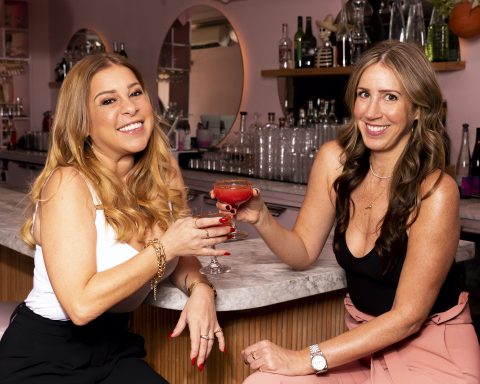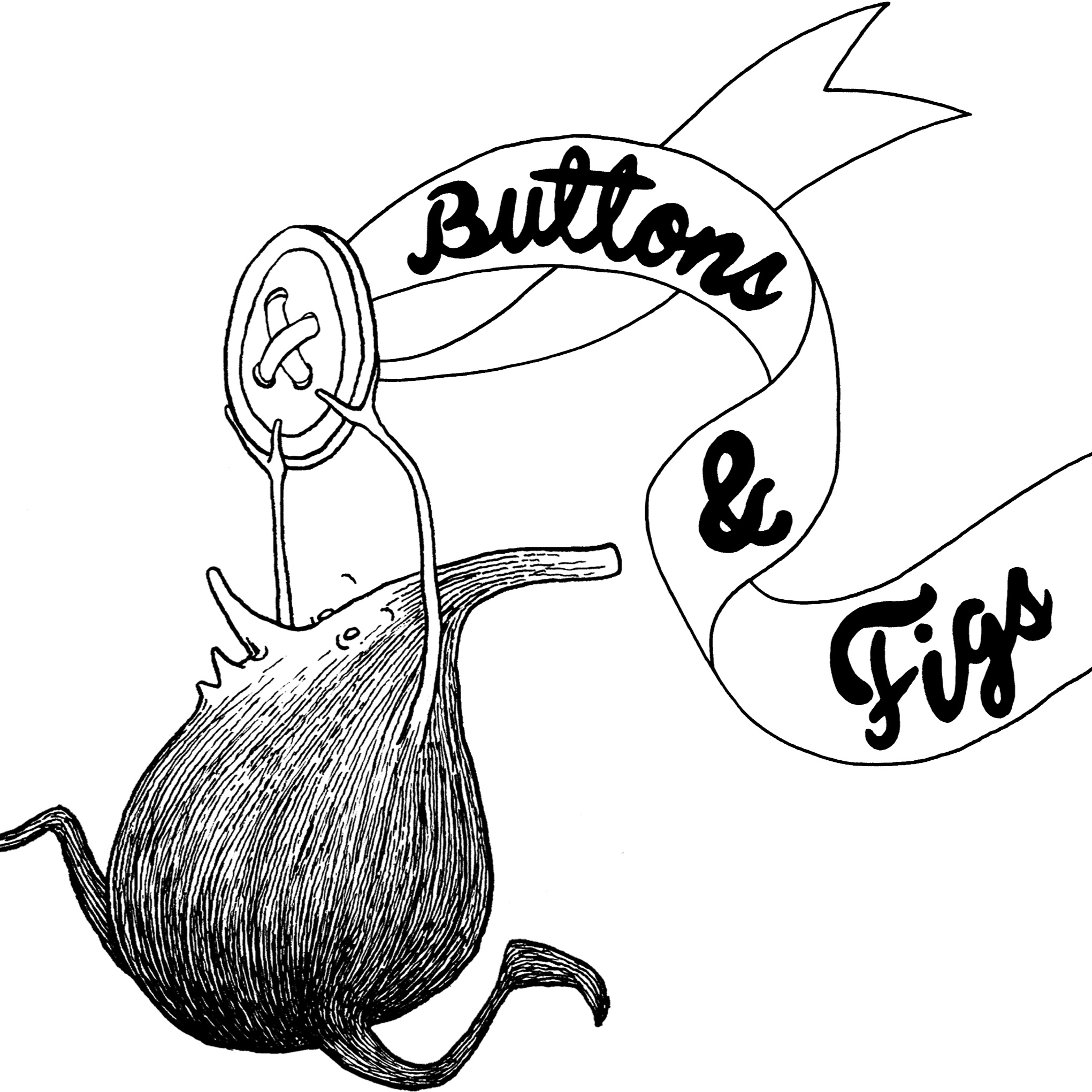The #1 Dad In Podcasting!
Howie Mandel is a legendary comedian, television personality, actor, producer, director, entrepreneur, game show host, and author.
And his wild success essentially began with a dare.
Mandel was in his early 20s when he attended his very first live stand-up comedy performance. When the emcee announced an opportunity for audience members to “show their comedy chops” in a three-minute segment, his friends goaded him to seize it.
True to his nature, he did.
“I went, ‘Okay,’” Mandel said. “At that point, I had zero aspiration to become a comedian in show business. There was no preparation. I just did it. If things are circling around me, and you catch me at the right time with a suggestion, it’s basically a dare, and I’ll probably go for it. It’s like Wayne Gretzky said: ‘You miss a hundred percent of the shots you don’t take.’
“Because of that, I basically fail every single day… I’ve literally failed my way to success. This is not a philosophy—it’s actually an issue I need therapy for! But it’s one of the ways that my issues have worked in a positive way. Nobody’s more thrilled—and surprised—than I am as to where I’m at now.”
Fortunately for podcast fans around the world, Mandel decided to take a shot with podcasting, too, as a way of coping with the pandemic.
He’s open about his mental health struggles: Mandel suffers from anxiety, depression, and severe ADHD and OCD… all of which have been exacerbated by COVID-19. Because he wasn’t able to connect with his kids and grandkids the way he is used to, nor perform standup, Mandel admits he was “a mess”:
“I was just trying to make it through each day. I’d spend hours on the phone with my daughter Jackie, who would talk me out of the hell I was in by making prank calls with me. We’d look for ads in the paper for jobs I wasn’t qualified for and just drive those people crazy. We’d call my friends, too. One day, my wife overheard what we were doing and insisted other people should hear it. Again, I said, ‘Ok!’ One of the side effects of my issues is that I don’t think of ramifications. So, that’s what the podcast is—it’s literally what I would do regardless of whether I was hosting a show or not.
“It’s also the answer to world peace,” Mandel joked. “The world will be a better place because of it, and that’s why I’m doing it. This is the answer to every problem anybody has ever had in the history of our world!”
While one might think disregarding potential ramifications falls on the extreme side of risk-taking, for Mandel, it keeps him living in the now.
“I’m always escaping me. I do things that force me to stay in the now, which experts will tell you is the key to happiness. Even though they are generally uncomfortable, the things that thrill and scare you will keep you present. People overthink—they weigh the past and future. But the only thing that’s real is the now. If you remove that overthinking from the process, yes, you’ll make more mistakes. But you’ll also learn more, and failing simply teaches you to move forward instead of standing still. That list of things you ‘shoulda, coulda, woulda’ done? That’s the residue of overthinking, because you ‘shoulda, coulda, woulda, aren’t.’ I’d rather regret the things I did than those I didn’t. You have to see everything as an opportunity. We are in total control of where we are in life.”
Seizing the opportunity to enter the podcasting space, Mandel’s comedy show—the Howie Mandel Does Stuff Podcast—is not about jokes, as Mandel isn’t a fan. What he’s really “tickled by” is the type of comedy he grew up with watching Candid Camera with Alan Funt.
“That’s my favorite kind of comedy,” he said. “Enduring the awkward, crazy, uncomfortable moments we all go through, together. If I can architect some of those moments and watch people navigate through uncomfortable positions, I think that’s probably the most relatable comedy, too.”
Mandel’s love of comedy took root in his childhood. Born and raised in the Willowdale area of north Toronto, Ontario, he recalls watching The Tonight Show and listening to comedy albums with his parents at as young as four years old. Too young to have any reference for the jokes, he could appreciate “the nice old man on Candid Camera explaining how, when the guy comes into the room and opens the door, there’s a bucket that’s going to fall on him. And then, I’d watch how the person reacted, whether it be in horror, anger, fear… or not having any idea what to do at all. Reality is always real to me. And that’s what I bring to my standup act, which is very improvisational. It’s what I wanted to bring to the podcast, too.”
Mandel’s first love is standup comedy—which he has been doing for an impressive 45 years. Unfortunately, because of COVID-19, he has been unable to perform on stage for nearly a year and a half.
“This continues to be one of the toughest times of my life. I’ve moved my therapist into a whole new tax bracket,” Mandel laughed. “I’m much more medicated than I’ve ever been, and that, along with my kids, family, and loved ones, is helping me through. But I’m still not comfortable standing in front of a live audience in an enclosed space where people go, ‘Ha ha ha!’ Before this, the longest I have ever gone without being on stage was probably two-and-a-half weeks. So that’s what’s kind of killing me internally.
“I’ve realized that performing is more than a career to me. It’s more than the money. It’s a form of connection. I crave real reaction from people, even if it’s not laughter. Even if I go too far and offend, it’s better than having no connection at all. So, the podcast has been quite a panacea for me.”
Seeking interaction, even negative attention for that matter, is an interesting aspiration in the midst of the cancel culture that is becoming more and more widespread. Mandel referred to his icon Richard Pryor to elaborate:
“Richard Pryor had just gotten out of the hospital after almost dying from freebasing when he was showing up every night to create what became ‘Live On The Sunset Strip,’ one of the most seminal comedy experiences there is. His was an art form… it was like observing a painter. Watch one splash black paint on a canvas and you’re going to naturally question who would buy it. But then, he adds some color to it, and shading, and it becomes beautiful.
“That first-line comedy is like that. Pryor had a concept. Even though he was literally still bandaged while working out his act, he was making fun of it! At that time, you could literally hear the audience going, ‘Ooh, ooh! It’s too soon.’ But there was no such thing as ‘too soon’ in the world of comedy back then. You have to find the humor in the darkest places. And that can trigger people. But I always thought it was funny.
“Honestly, the one thing I love to do, I’m thinking of quitting. Even though I have a plethora of material that I can fall back on, my joy is in getting off the beaten path. My knee-jerk response to things is my calling card. And the fact that now everybody has the ability to take a snapshot of that with their phones, or even talk about it and tweet about it later, is the scariest thing in the world, because out of context, I could be canceled. When something’s tasteless, when something’s too soon, when something’s not right, it becomes the seed that you need to grow humor. To me, that means being able to sense humor where nobody else can.
“The darkest days of my life have been my most guttural laughs, because I need it—if I don’t laugh, I cry. There’s a thin line between tragedy and comedy. If you can look at tragedy and find the ray of light in it, that’ll get you through… and that’s what I’ve done my entire life. But I’m afraid right now, because even mentioning those seeds in the wrong place at the wrong time nowadays can easily mean you’re gone.”
The Howie Mandel Does Stuff Podcast is also a part of Mandel’s ongoing quest to figure out who he is, which he says is “the process of life.” Whereas many tend to reach certain milestones, get tired, and stop, subsequently hanging on to their place in life by a thread, Mandel is fascinated with constant change.
“Who I am, how I react and do things… it never stays the same. Oprah coined the acronym ‘FOMO’: fear of missing out. I definitely have that, so I can’t just stop. I want to keep climbing and getting better. I want more and more knowledge. When I don’t understand something, but I’m aware of its popularity, I have to find out why it’s popular. That’s why I’m on TikTok. That’s why the rhythm and the things that I hit on with the podcast are so different than anything I’ve ever done in my act. I’m always asking, ‘What is this? Is that funny? It’s got like 40 million views.’”
Mandel has three kids, Jackie, Riley, and Alex, to help answer those questions. He also credits them for his being a “much better person” than he was before he became a parent.
“I thought that I would grow up, get married, have kids, and teach them about the world and everything I’ve learned. I did the first three, but it’s my children who continually teach me.
“When my daughter was a teenager, she couldn’t stand me. I literally thought I was going to die during those years! Through therapy, her growing up, and my learning how to deal, we got through it. But it taught me things that I apply to my life outside of parenting, too. Like, it’s easy to get angry at your child, right? It’s easy to get angry in general. And as human beings, we have knee-jerk reactions. But if you just take a moment, or an hour, or a day, and just back up from it, then you can avoid an angry response, which is never the right thing. As I mentioned, I don’t think of ramifications, so when my daughter and I would get into it, she’d get agitated, and I’d fire right back at her. I was escalating instead of moving the situation forward. And it was like, ‘Who’s the adult here?’ In stepping away, you gain calmness, and you can say, ‘Listen, that was disrespectful. That was wrong.’
“We talk about this on my podcast, but just after she turned 16, we gave Jackie a car. She then pierced her tongue despite our giving her a strong ‘no’ when she’d asked. I was really angry, but I chose not to fight her, even when she gave me the ‘But it’s MY body!’ line. I also couldn’t reward that behavior. So, I took back her car and told her she needed to learn boundaries and respect. For six months, I became her personal chauffeur. I had to get up at 6:00 a.m. to take her to school. She’d turn the radio up until my ears were bleeding and sing along… it was the worst 40 minutes of every day! Through that whole time, which felt like an eternity, patience was the hardest thing. I constantly fought the urge to tell her to take it out.
“Finally, she comes to me one day, opens her hand, and there’s the stud. She goes, ‘You can have it. Can I have the keys to the car now?’ And to this day, even at 36, she thanks me for being so patient and teaching her that lesson. She would’ve learned nothing if I’d forced her to take it out. It would have just intensified the anger. But she watched me handle it with patience, which I don’t really have, but pretended to. That moved the needle a lot more than the normal human reaction. I wish I would have learned this one sooner… and that I could have a do-over of the first 15 years of each of my kids’ lives!”
By all external measures, Mandel has reached enormous success. Still, he continuously strives for his own version of accomplishment.
“To me, success is contentment. Happiness. It’s not fame—that’s fleeting. It’s not money. It’s having found my path. I made it, and am successful, because I dared to do the things that scared me.”
By failing his way to success, one step at a time, Mandel has made a significant and unforgettable mark on the world of comedy. And now, he’s using the podcasting medium to connect with people all around the world as he does what he does best: bringing smiles and laughter to his listeners and fans.













